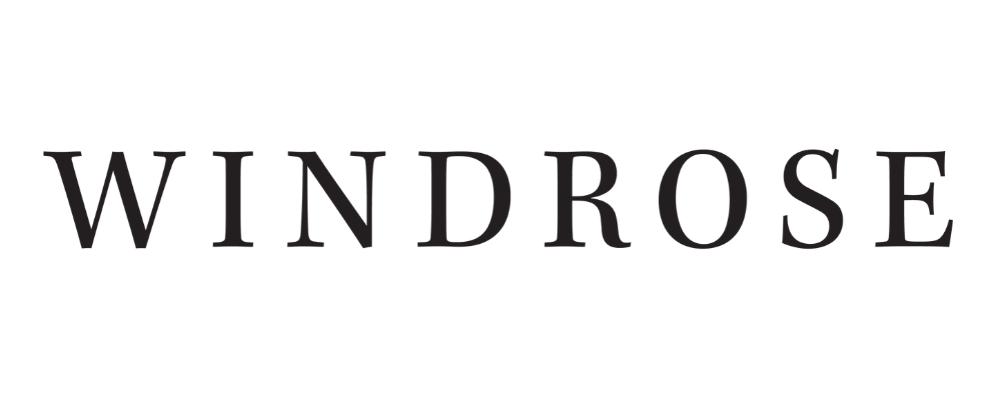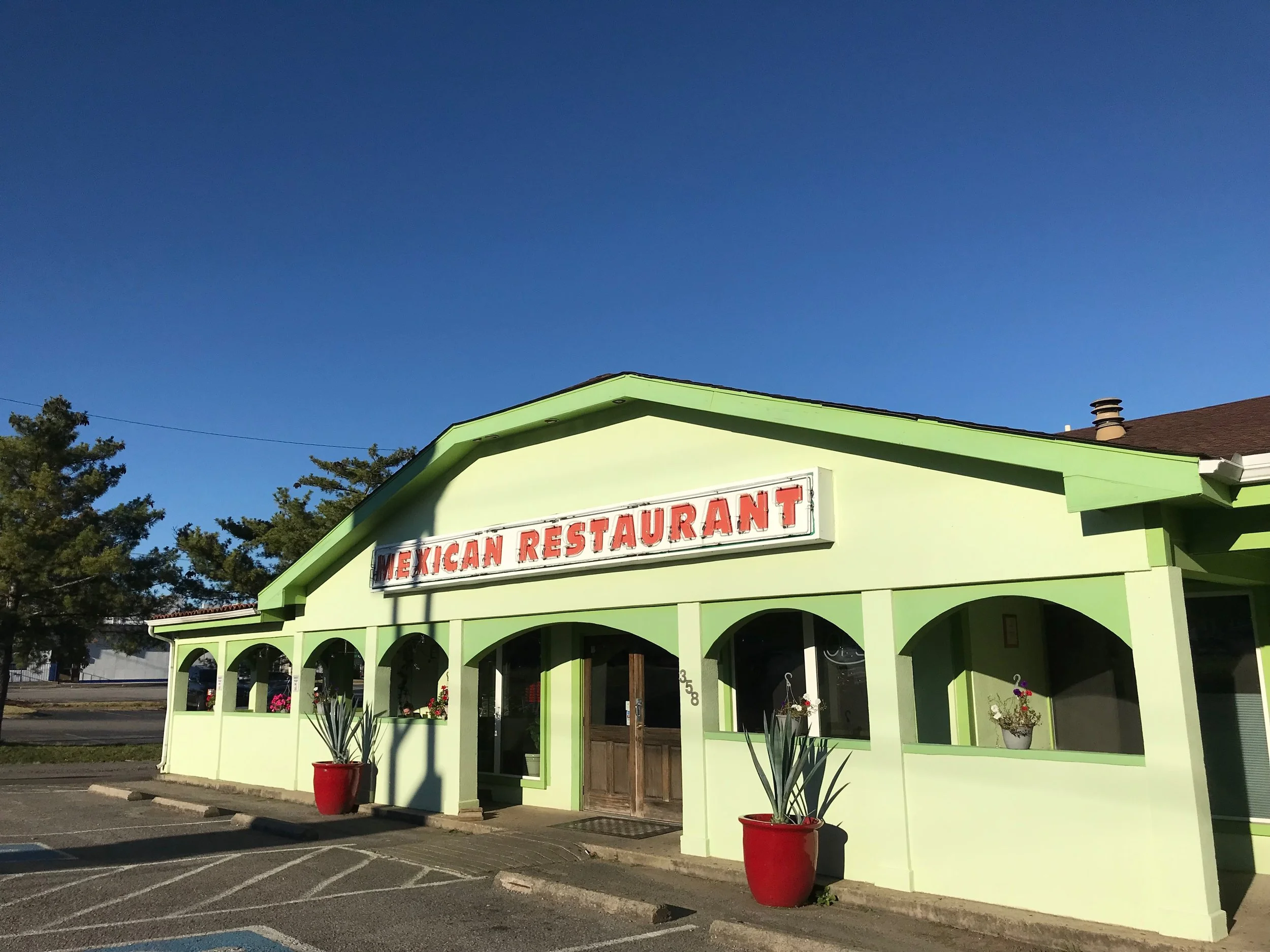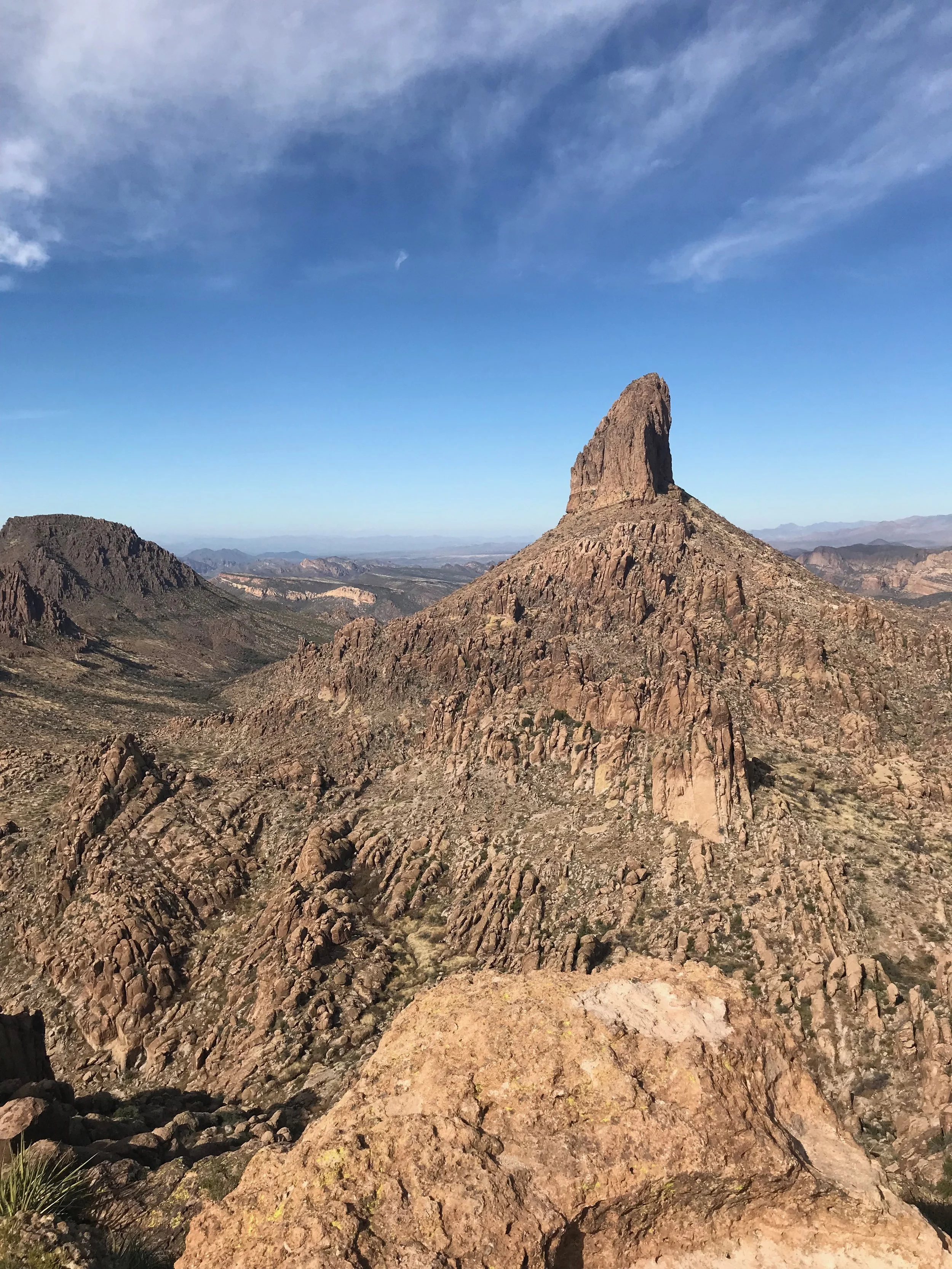You Can Do Hard Things
[This essay was originally sent as part of our “Words for Your Wednesday” weekly email series on July 1, 2020. If you’d like to get reads like this one sent straight to your inbox, you can join the Windrose email community here.]
“Would you rather be comfortable?” my roommate, Chelsey, asked me.
Work has weighed heavily on me these last several weeks, and on this particular day, I felt like I was on the precipice of a cliffside drop into a panic attack. As I boiled noodles and browned ground turkey, I shared my stresses with my friend as stray tears tried to make a quick getaway from my eyes.
Would I rather be comfortable or challenged?
Lately, my answer has leaned toward the former. I’m a comfort-lovin’ gal. I like 72°F—no need for a sweater, but no risk of sweating. Comfortable. I like window seats on planes—no stuffing myself between two people, a window to rest my head against for a nap at cruising altitude. Comfortable. I like to pretend that a walk around the neighborhood counts as exercise—no pounding the pavement with my runners, no crunches to make my abs feel like they might snap clean in two. Comfortable.
Admittedly, the pursuit of my life, lately, has been for just that: comfort. But these last few months have challenged all notions of comfort—globally, on the world stage, and personally, in my own individual challenges.
And I have struggled.
Two summers ago, I spent 14 days in the wilds of Canada, exploring foggy coastal inlets and soaring snowy peaks. One hike in Banff National Park led to two tea houses tucked high among the dark evergreens—an 8 hour loop sprinkled with switchbacks, snow patches, and thigh-burning inclines.
“That hike was so hard. I barely finished before nightfall,” warned our Airbnb host when my friend and I shared our plans to conquer the loop.
My friend brushed it off and insisted we give it a try. My Fear, on the other hand, snacked on our host’s comment for energy, singing me to sleep with lullabies of self-doubt in the nights leading up to our hike.
The hike to the first tea house was only a couple miles from the trailhead, making for an easy amble. After grabbing a cuppa from the wooden cabin tucked next to a forest-hugged alpine lake, we set off for the next stop—our faces and hands suddenly chilled by an unexpected, persistent wind that swept over the ridge and rippled across the water.
We approached a set of switchbacks leading up, up, up, away from the throngs of people huddled below. My heart beat wildly as I climbed, while my friend bounded ahead, untroubled by the ascent.
But my Fear spoke up in loud declarations: You can’t do this. Turn around now. Return to the safe resort with its concrete shoreside paths.
I watched other hikers pass by, clad like REI mannequins in the latest hiking gear, clearly more prepared for a wilderness ramble than me. In comparison, I sported tennis shoes that I had owned since high school, thin yoga leggings, and a leather backpack that cut its weight into my shoulders. My only training for this trip was a part-time job that required frequent trips up and down a flight of stairs. I was hardly cut out for the hike ahead, and Fear was quick to point this out to me.
I paused from hiking higher, drank some water, and listened longer to Fear’s closing arguments: Turn around. You aren’t equipped for this.
During these past few weeks, Fear has begun whispering these same sweet nothings into my heart. The first whispers were subtle, barely noticeable—like a scroll through Instagram that left me with a twinge of guilt that perhaps I hadn’t done enough in a day. In time, the anxious undercurrent quickened, threatening to pull me out to sea: I was crossing tasks off my to do list as early as 6 am, feeling as though I were in a race against my agenda, hoping that each check in my planner would calm Fear’s riptide.
But no matter how much I accomplished in a day, Fear remained, singing its "you can’t do this” diddy.
Then, I booked my three biggest client projects yet, all in a matter of weeks. Fear started shouting: You will fail. You will let your clients down.
A few days later, a long-term monthly client had to significantly cut her work with me. Fear grabbed a megaphone, amplifying its chant:
You can’t do this. You'll go broke without this client.
Why not go back to a safe job, one where the paycheck hits your account every two weeks? One where decisions are made by upper management? One where you know what to expect?
One where you are comfortable?
I know that challenge is an opportunity for growth. But if I was given the opportunity to write the Rules of Life, this would not be the case. If it were up to me, comfort would bring out my best self. I would thrive with absolutely no challenge whatsoever.
Sadly, this is not what happens.
Instead, comfort only brings complacency, an apathetic drifting through my days that—though free of all the self-doubt and crunchy feelings that come along with challenge—stunts my growth.
But now, my work challenges me. (Real talk: this year as a whole challenges all of us.) Fear is loud, comparing me to the progress of other business owners: Look—she’s working with dream clients. Her marketing is flawless. She has a waitlist of people eager to work with her. She works harder than you. You are lazy. You aren’t capable. You can’t do this.
And just like that, I am ready to throw in the towel, to give up, if only so I can get Fear to quiet its taunts and let me drift along in peace.
Why does being challenged have to feel so rotten?
During that tea house hike two summers ago, I didn’t turn around after all. I kept moving forward, despite Fear’s attempts to convince me that I was going to have a panic attack right smack dab on the side of a mountain.
Had I given into Fear’s baseless, comparison-fueled, self-doubt-filled warnings, I would have missed out on what was waiting on the ridgetop: sweeping views of the Canadian Rockies, the sun reflecting like sparklers on the blue Lake Louise thousands of feet below—a scene straight from a mountain dream.
Sitting on my desk now is a piece of cardstock paper the size of a greeting card. Inked over three watercolor brush strokes are these words: “You can do hard things.”
It’s a reminder of another voice that spoke up during my doubt-filled switchback climb to offer a message in stark contrast to Fear; this sacred soul-whisper helped me to shake my panic and continue onward and upward.
I glance at that reminder now, as I struggle with Fear’s insistence that I am not up for the challenges that running my own business—and surviving 2020 in general—are throwing my way.
I do want a life of growth. And that means a life of challenge, even if that means Fear will be waiting right beside me to speak its dreaded “what if” scenarios into my heart.
I bet you want a life of growth, too. And if Fear is being a real buzzkill for you, here’s a warm cuppa of encouragement for whatever mountain you face today:
You can do hard things.













Windrose Co-Founder & Editor
Ally is a 2014 graduate of Belmont University in Nashville, the city she still calls home. She owns a cat named after C.S. Lewis and buys way too many concert and plane tickets and then writes about it. She believes London is the most magical city in all the world and will defend this position somewhat aggressively. She owns Cadence Copy Studio, a copywriting agency for small business owners. You can check out her music, travel & life musings on her personal blog, Maps & Mochas. Then come say hi — Ally is the one who answers emails (and the one writing this description about herself in third person).